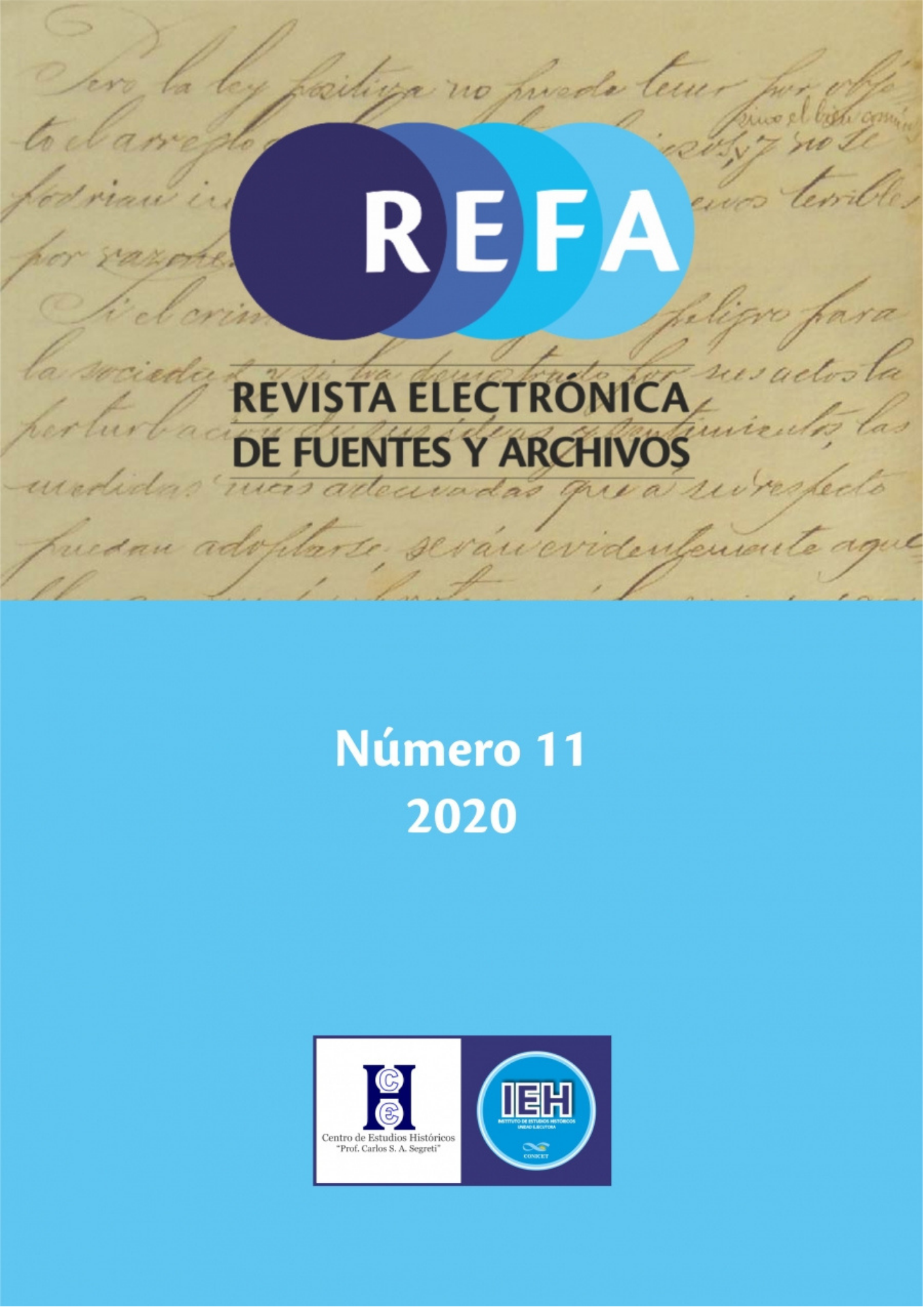Leonardo Dimase’s documentary fund. Contributions of the DIL to the study of labor and Argentinian politics (1960-1989)
Keywords:
DIL, Dimase, documentary fund, labor movement, unionismAbstract
The article proposes is to present the Leonardo Dimase’s documentary fund hosted in the Centro de Estudios e Investigaciones Laborales (CEIL) of the Consejo Nacional de Investigaciones Científicas y Técnicas (CONICET). We start with a biographical tour of Dimase and his professional background. Then, we describe the characteristics of the fund and its contributions to the study of labor, unionism, politics and other aspects of the argentinian and international history. This will let us to inform a key resource to research in those fields, and the own work of Dimase as a journalist, as well as his most notorious production, the monthly newsletter called Informes Laborales.
Downloads
References
BASUALDO Victoria y Silvia NASSIF, “Fuentes y archivos para el estudio de procesos represivos contra sindicatos y trabajadores/as en Argentina en las dictaduras de la Guerra Fría”, Sociohistórica, núm. 44, 2019-2020. DAWYD Darío y Silvia NASSIF, “Fuentes para el estudio del movimiento obrero: El Servicio de Documentación e información Laboral (DIL), dirigido por Leonardo Dimase (1960-1976, 1982-1989)”, Corpus. Archivos virtuales de la alteridad americana, vol. 3, núm. 2, 2013.
IZAGUIRRE Inés y Zulema ARISTIZÁBAL, “Las luchas obreras 1973-1976. Los alineamientos de la clase obrera durante el gobierno peronista. Nuevas consideraciones teórico-metodológicas para el estudio de los conflictos obreros”, Documentos de Trabajo, núm. 17, 2002.
MCGUIRE James W., “The Causes of Strikes in Argentina, 1984-1991”, XVII International Congress of the Latin American Studies Association, Los Angeles, California, 1992.
Downloads
Published
Issue
Section
License
Copyright (c) 2020 Darío Dawyd

This work is licensed under a Creative Commons Attribution-NonCommercial-ShareAlike 4.0 International License.
Se puede compartir (copiar y redistribuir el material en cualquier medio o formato) y adaptar (remezclar, transformar y construir a partir del material), siempre que: a) se cite la autoría y la fuente original de su publicación (revista, editorial y URL de la obra); b) no se use con fines comerciales; c) la distribución de las obras derivadas se haga con una licencia igual a la que regula la obra original.




















